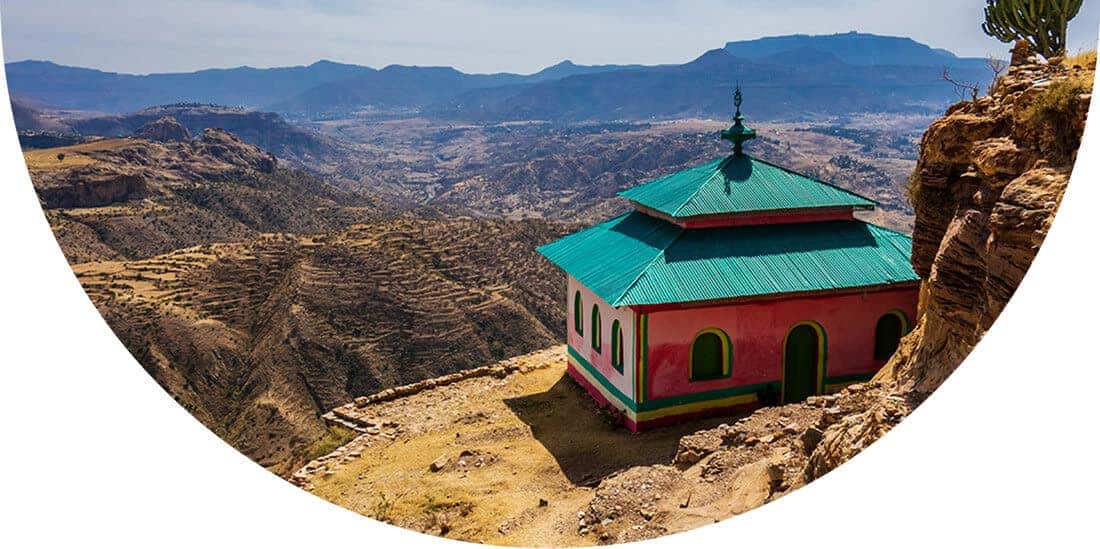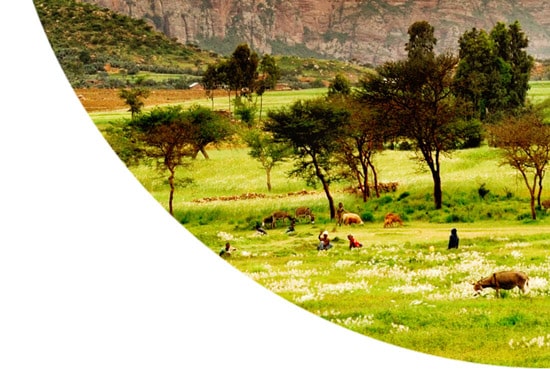Rift Valley fever (RVF) is an acute, fever-causing viral disease that usually affects domesticated animals (such as cattle and sheep), but can also infect and cause illness in humans. The majority of human infections are caused by direct or indirect contact with the blood or organs of infected animals.


Travel Vaccinations for Ethiopia
Recommended Vaccines for Ethiopia
The level of protection needed depends on your medical history and travel itinerary. Book now to get a personalised recommendation from our specialist travel nurses. The consultation costs £20 plus any vaccines you decide to take.
Flexible appointments with no upfront payment
Book Now
Destination Information for Ethiopia
Ethiopia, found on the Horn of Africa, is the second most populated country in Africa, and the oldest independent country on the continent. Ethiopia is a dramatic, extreme and adventure-filled country, filled with incredible wildlife and historical treasures. Ethiopia has much to offer for visitors not least the scientific communities belief that this country could be the cradle of mankind. The ancient Ge’ez script, which is also known as Ethiopic is one of the oldest alphabets still in use.
The natural attractions of the country include not only the arid desert vista’s with which we’re likely familiar, but also beautiful mountains, lakes and waterfalls. As we previously mentioned both historians and scientists believe that Ethiopia was home to the beginning of mankind, and fossils of some of the oldest humans to be found, which are 3.5 million years old, were discovered in the north of the country. If you’re out for adventure, make sure you visit the volcanic lake in the Danakil Depression, said to be the hottest and most inhospitable place on earth! Ethiopia’s capital, the city of Addis Ababa in the Entoto Mountains is the starting point for most tourists. From here you can join organised tours to see some of the spectacular views and ancient religious sites, from castles to hidden tombs.
Addis Ababa is also where you’ll find the National Museum and the Ethnological Museum, with enough to see to satisfy the most curious of travellers. For those wanting to experience the wild side of Ethiopia, head to the Bale Mountains National Park, a stunning landscape with incredible views and a dense concentration of wildlife. While you’re in the country, make sure you sample a cup of fresh coffee – it’s here that the humble coffee bean was first discovered!
Travel vaccinations are essential when visiting the country, with a Yellow Fever vaccination certificate required upon entry to the country, for anyone above 9 months old as there is a risk in parts of the country. Also recommended is Hepatitis A & B, Tetanus, Diphtheria and Polio vaccine. Other vaccines to protect you against Rabies, Meningitis ACWY and Cholera are also necessary depending upon your itinerary.
You should also be prepared for the high risk of malaria, and at London Travel Clinic we provide a range of antimalarials. If there happens to be a risk of altitude for you then make sure to book an appointment and discuss this at your consultation.
Infections and Outbreaks frequently change from country to country and by attending our clinics you will be given the most up to date clinical and safety advice from our team of specialists. Our advice to you often includes aspects such as:
- Food and water hygiene
- Insect and animal bite avoidances
- Personal safety
- Sexually transmitted infections
- Sun protection
- Altitude sickness
Malaria and regions within country:
There is a high risk of P.Falciparum and P.Vivax malaria throughout the country, excluding the city of Addis Ababa where there is no risk. In high risk areas anti-malarial medication is recommended.
Additional Health Risks Information for Ethiopia
Travellers planning a trip to Ethiopia should avoid visiting areas close to the border, and certain areas of the Somali region, due to the possibility of violent clashes, protests and border disputes. In all other areas of the country you should travel with extreme caution, and as part of a group if possible. There are official and unofficial roadblocks in place throughout Ethiopia, and while foreigners are not usually the target of violence, it is easy to get caught up. Some parts of Ethiopia are high risk for malaria and Yellow fever, it is advisable to visit a Travel clinic to get the necessary vaccines, medications and advice before you travel.
The heat of Ethiopia and difficult terrain in many areas make travelling by road difficult. Vehicles and roads are not well maintained. You should always carry enough fuel for your entire journey, along with plenty of food, fresh drinking water and a well-stocked medical kit. It’s recommended to take a satellite telephone in case of emergency. Never leave your vehicle unattended.
Addis Ababa is home to a number of public hospitals, but the standard of treatment is poor in all except private clinics. Water-borne diseases such as cholera and bilharzia are common. Make sure that you have all recommended vaccinations before you travel, and that you have adequate insurance in place which covers medical evacuation if necessary.



